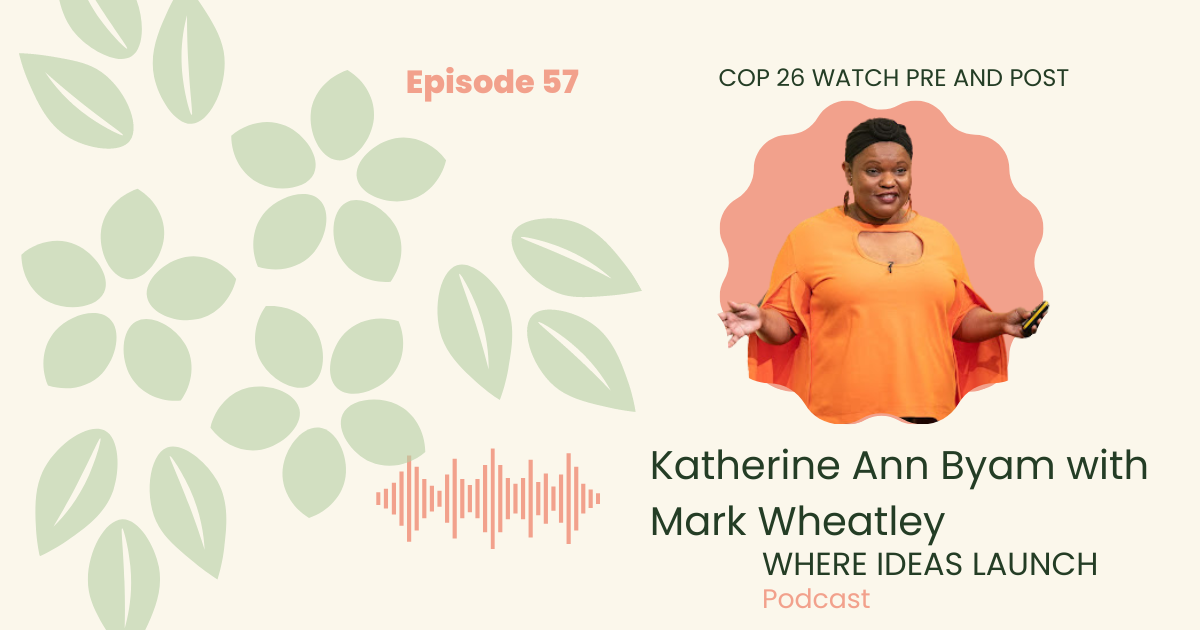
Katherine Ann Byam (MBA, FCCA) is the wing-woman to your genius, and a business resilience / organic growth consultant. As a strategic partner to leaders, she helps businesses design and embed effective strategies for responsible brand stewardship, to deliver outcomes that favour a wider stakeholder view.
In consulting she supports sustainable business development, resilience and business transformation projects. She is also a specialist in using Linkedin to generate organic growth and impact.
As a leadership coach, she works one to one with you as you go through any critical leadership changes; career transitions, starting businesses or scaling.
Her aim is to address solutions that consider society and environmental resiliency at their core so that her clients preserve their longevity and a fair return for innovation and ingenuity.
Her brands include Dieple Virtual Services Hub, Where Ideas Launch, Women in Sustainable Business, The Eco-Business Growth Club, Diep Linked Agency Services, the Courageous Career Club and the WW Executive business club.
My inner voice to me: Kathy, you're supposed to have hope, be an activist for change, advocate for better ways of living with the flora and fauna and other humans on the planet. You have to believe new futures are possible, instead of being on track to hit 2.7 degrees of warming.
As much as I'm a hopeful optimist, I am nagged by the pessimism of doubt, understandably, because we've known about the coming crisis since the Club of Rome report in the 1970s. That's 50 years we had to start doing something. And now we leave a lot of work to get done in a really short space of time.
What fills me with hope is that our young people are learning things we didn't learn. Yes, there's a bit of carbon tunnel vision in all that learning, but it still beats denial, which seems to have finally left the building.
Cop 26 takes place in Scotland over the next few weeks and opinions are mixed on whether or not you will make enough meaningful change.
There are also many activists doing something from creating business models that combine a positive social impact to volunteering, designing carbon sinks and carbon sequestration projects, and creating non plastic, plastic, renewable energy and circular economy principles.
There is hope. We're still a long, long way from reforming the economic model. However, the cuckoo in the nest of the last 50 years has been the successful efforts at treating and teaching economics as if it were a scientific discipline. Until we realised we haven't been successful at all.
Milton Friedman is seen often as the father of shareholder capitalism, and perhaps will have a lot to account for in another life. But it wasn't only him. Many economists and leaders got this wrong. I started listening to Kate Raworth’s TED talk, and then reading her book about the revolutionary Donut Principles of Economics, and it's the first time in my entire life, I heard something from an economist that sounded sensible to me, sorry, economists.
I'll never forget my first economics class, where the teacher explained what Ceteris Paribus meant, all things being equal. It came after almost every statement in economics and I was like, but all things aren't equal. This doesn't make any sense.
Troublemaker! That was my label.
In brief Kate's theory is this, there are two bands, a social foundation beneath which no one on our planet should slip, and an outer band or ecological ceiling beyond which we should not exceed. Inside the donut is a safe and just space for humanity, Flora, Fauna, and where we are thought to be happiest. Beyond the donut's outer ring, we are in for a whole heap of sadness.
The nine things that trigger planetary boundaries on the outer ring of climate change, ozone layer depletion, air pollution, biodiversity loss, land conversion, freshwater withdrawals, nitrogen and phosphorus loading, chemical pollution and ocean acidification.
The core social foundations we need to have in place for everyone are as follows: water, food, health, education, income and work peace and justice, political voice, social equity, gender equality, housing, networks and energy. So how do we live and act meaningfully within the green band of this donut?
As business leaders adjust, the goal for the foreseeable future is to find ways to bring this green ring to life without tipping off the edges on either side. There are many ways to do this:
With your vote, what groups are supporting the donut as an ideology for the way we think about growth in the future? And how can we make sure that those groups are facilitating our future?
Your pockets - which organisations are giving back to bolster the communities in which they live and thrive?
Your advocacy: what groups are you interested in supporting to help raise their status and position?
Your charity: CSR donations and support? Who are you giving to and how are they helping Your business models? What can you do with your business models to be of more direct service to people who need a helping hand?
Your inclusion, how can you make it so that more diverse people are included in the work you do and the problems you solve?
Season Four is all about the before and after a cop 26 Thanks for listening and joining me on this programme.
Season Four of Where Ideas launch was brought to you today by Katherine Ann Byam business resilience and strategy consulting services. Katherine provides business assessments and strategic support to help guide your business toward a netzero future.
Get in touch with Katherine Ann Byam on LinkedIn